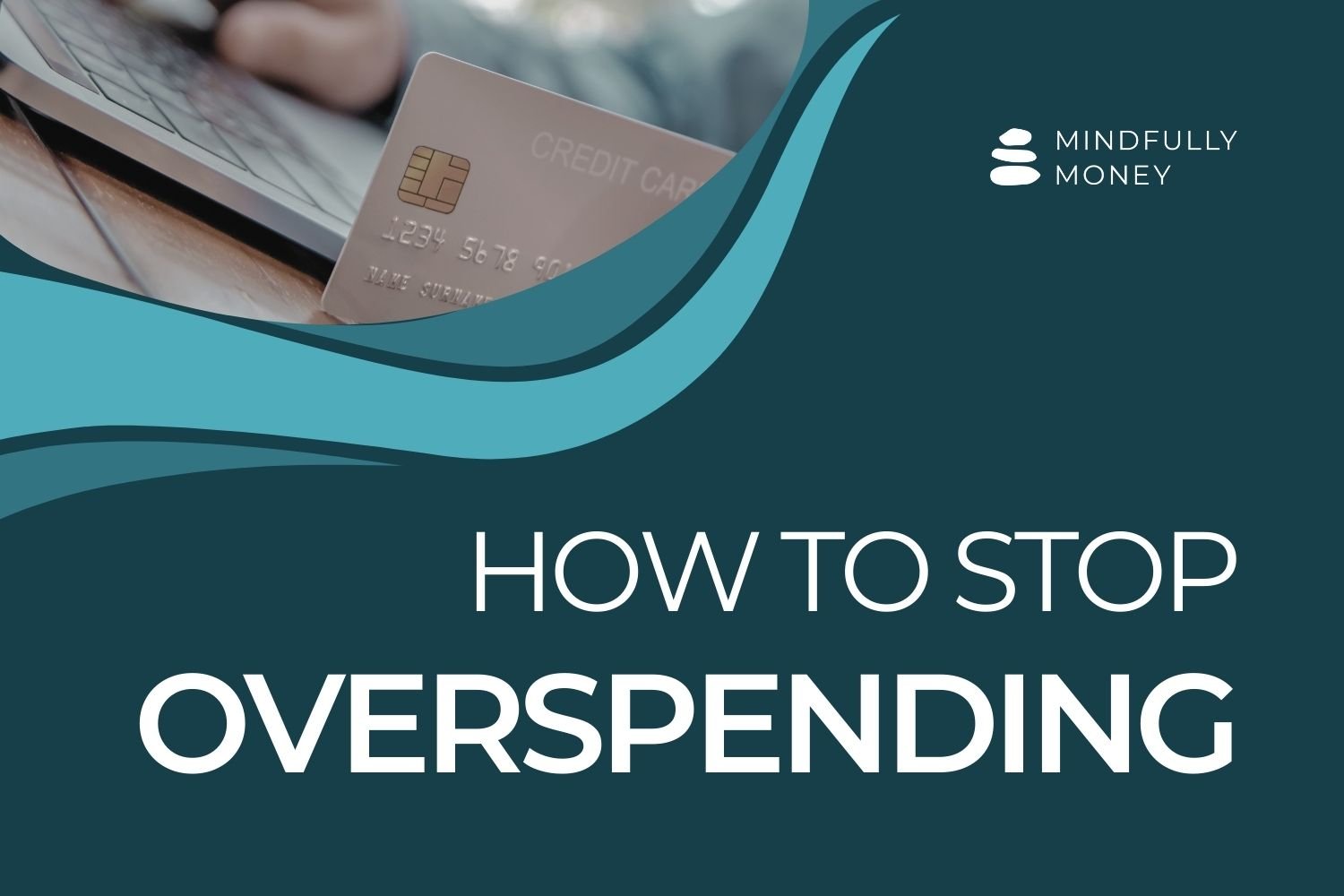Why do I struggle with money even though I know what to do?
You're a smart person who knows exactly what to do with your finances. So why are you always struggling with managing money?
There’s no shortage of personal finance advice. You can learn how to do just about anything on the internet, and now we have ChatGPT and other AI tools to answer any questions we have. But knowing what to do and actually making it happen are two very different things.
You’ve read all of the books, watched all of the videos, and binged all of the personal finance advice articles online. But you continue to be in debt, struggle to save money, and find it challenging to get ahead.
You keep thinking that the problem is that you just don’t know enough, so you keep consuming information. Since none of the information is helping, you think that there must be something else out there that you don’t yet know. So you keep searching for more and more information, not realizing that at this point, you’re basically an expert in knowing what to do.
Let me say that again: you know what you are supposed to do with your money.
You know you need to save more, spend less on things that go to waste or get stashed in a closet. You know your income needs to exceed your expenses, and you should pay off your debt. You know all of the things to do.
And yet, you can’t figure out how to actually do it.
This paradox between having the knowledge and taking action is something that affects most of us to some degree. Figuring out how to change this starts with understanding exactly why this happens.
1. Information Overload
If you’ve ever spent a day getting sucked into the personal finance advice space on social media or your favorite websites, you might start to feel like you’re drowning in a sea of information. A walk down the personal finance aisle and the library or bookstore will show you just how many books have been published on the topic.
While it’s great to have information, it doesn’t do you much good if you can’t figure out which information is relevant to you. It doesn’t help that much of the information appears to contradict itself.
Should you have $1000 in your emergency fund? Three months worth of expenses? Six months? A year?
Should you use a debt avalanche or a debt snowball method?
Do you use an app to budget or a spreadsheet? Or cash envelopes?
This is just a small sample of the debates between personal finance experts.
So what is going on here? It turns out that there isn’t just one right answer to most financial questions. What works for one person doesn’t work for another.
All personal finance advice must be taken and applied to your exact situation, level of comfort, values, and goals.
How to Overcome Information Overload:
Figure out what is important to you—what your values and goals are.
Stop consuming information and ask yourself what you already know that could help you achieve those goals and align your money with your values.
Get help from a financial professional. A financial planner can help analyze all of your information together and help you figure out the right strategy, investments, insurance, etc to achieve your goals. A financial coach can help you see the broader picture as it applies to your specific situation to help you transform your mindset to effectively build the habit of saving, get out of debt, and keep track of your income and expenses (budget).
2. External vs. Internal Factors
The struggle with personal finance is a combination of external and internal forces—it’s both things we can control and things we can.
Certainly, the economy, low wages, inflation, the stock market, high medical costs, and more play a part in determining our financial outcomes. We absolutely need a better social support system.
At the same time, we tend to have much more control than we think we do. It’s easy to look at all of the external factors and give up because everything seems to be against you. But our emotions, habits, desires, behaviors, and thoughts have a more profound impact on our financial decisions than we care to admit.
How to Overcome This:
We all can do a better job of taking care of those who are struggling in our society by advocating for programs, contacting politicians, etc.
But ultimately, you only have control over your own thoughts, beliefs, feelings, and actions.
Focusing on the things that are in your control is the best way to empower yourself to make the changes you desire.
3. Life is full of demands and challenges
At the end of the day, you have to put the information you have into practice. And that’s where things get hard.
I can know everything there is to know about saving money, but that doesn’t help me when I have 300 other things on my mind and my kid comes home from school needing money for another field trip, the garage door breaks and won’t open, the piano needs tuning, and your other kid outgrew their shoes again.
I can intend to make more meals at home and plan ahead with my grocery shopping, but if I end up in a day of meetings that took longer than anticipated and ended up having to take my pet to the vet, it’s likely that my plans will go out the window.
I can try to make all of my coffee at home, but if I’ve had a crazy day of screaming toddlers or upset customers, sometimes that coffee is what saves my sanity.
The problem isn’t knowing what to do. It’s overcoming all of the obstacles that are part of life.
Related: What to Do When You’re Stressed About Money
How to overcome this:
I don’t think there’s a single person anywhere who has this figured out entirely (except perhaps ascetic monks or people with many personal assistants).
But here are a few things that can help:
Automating as much as possible. Set up automatic bill pay and transfers of money to savings accounts immediately after you are paid.
Save extra money so that you’re prepared when unexpected expenses arise.
Identify the most common reasons your budget gets derailed and make a plan for what you will do. For example, when you’re too tired or busy to make dinner, what items could you have on hand to easily throw together a meal instead of going out?
4. Conflicting Priorities
Even when you know that you’re supposed to be saving for retirement or paying off debt, finding the money to do so isn’t always easy. Sometimes that’s due to the demands of modern life and the inability to pay for medical care, food, child care, and all of the other things.
But often, the problem is that too many things are important and you don’t have enough resources to do all of them.
For example:
You want to get out of debt, but you also want to buy a home and go on vacation.
You want to save for college, but you also need to save for retirement.
You want to save for retirement, but your parents also need help paying for their own retirement.
You want to send the kids to overnight summer camps or wilderness adventures, but you also want to go on a family vacation.
You want to have a perfect, magazine-worthy home, but you also want to have enough so you can quit your job and have more control over your time.
How to overcome this:
Unfortunately, you may never have enough money to do every single thing you want. But if you’re careful and intentional with your money, you can likely achieve the things that are most important to you—at least on some level.
This means:
Identifying your core values so you know what is important to you.
Setting goals that are in alignment with your values and that help you achieve the things that matter most.
Cutting back on everything else so that you have more to spend on what’s important to you.
5. Being Human
Humans do not operate based on spreadsheets and numbers. Humans are emotional beings who don’t always make rational decisions based on what makes the most financial sense or what they know they are supposed to do.
If you have found yourself buying things, putting off savings, accruing credit card debt, etc, it’s not that there’s something wrong with you—you’re just human.
Our brains are wired to prioritize the here and now instead of saving. We’re constantly looking for immediate gratification and seeking things that make us feel good.
So instead of thinking that you’re bad with money, incapable of saving, or something like that, it’s important to acknowledge that you’re normal. AND, that these are all skills you can learn.
How to overcome this:
Set up systems and automations to help you
Give yourself some grace
Start paying attention to the emotions you are experiencing when you make financial decisions
Consider getting help from a financial coach, who can help you identify how emotions affect your money and design a strategy to help you stay on track
Ultimately, knowing what to do is only a small part of managing money.
I have watched so many people struggle with money for all of the above reasons, and they end up in this cycle of shame because they think of it as a personal failure. Then they either keep seeking more knowledge without it ever working, or they avoid it and give up.
If you’ve ever felt that way, start by reflecting on the above reasons why people struggle with money even when they know what to do. Identify a few areas that resonate with you and select a couple of the strategies for overcoming it.
With some smart strategies and a little self-compassion, you can learn to be good with your money.
And if you want any support and guidance to help you understand what’s happening emotionally, develop a personalized strategy or apply generic financial advice to your situation, check out my financial coaching page and contact me for a free Q&A call.












